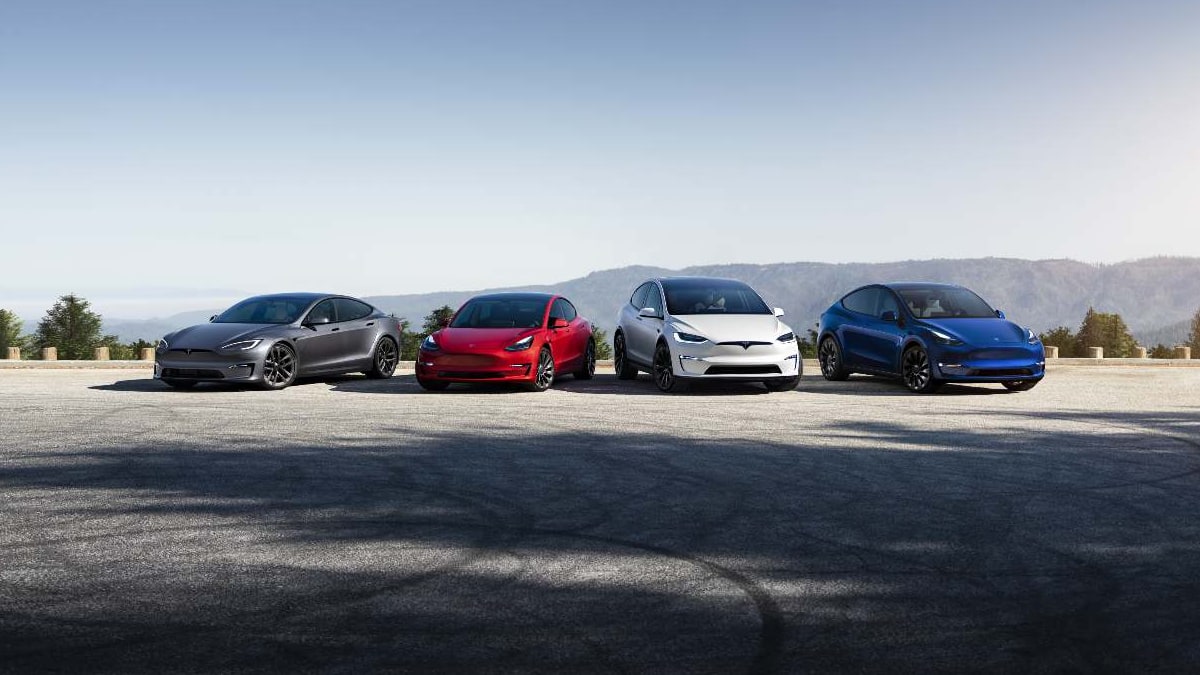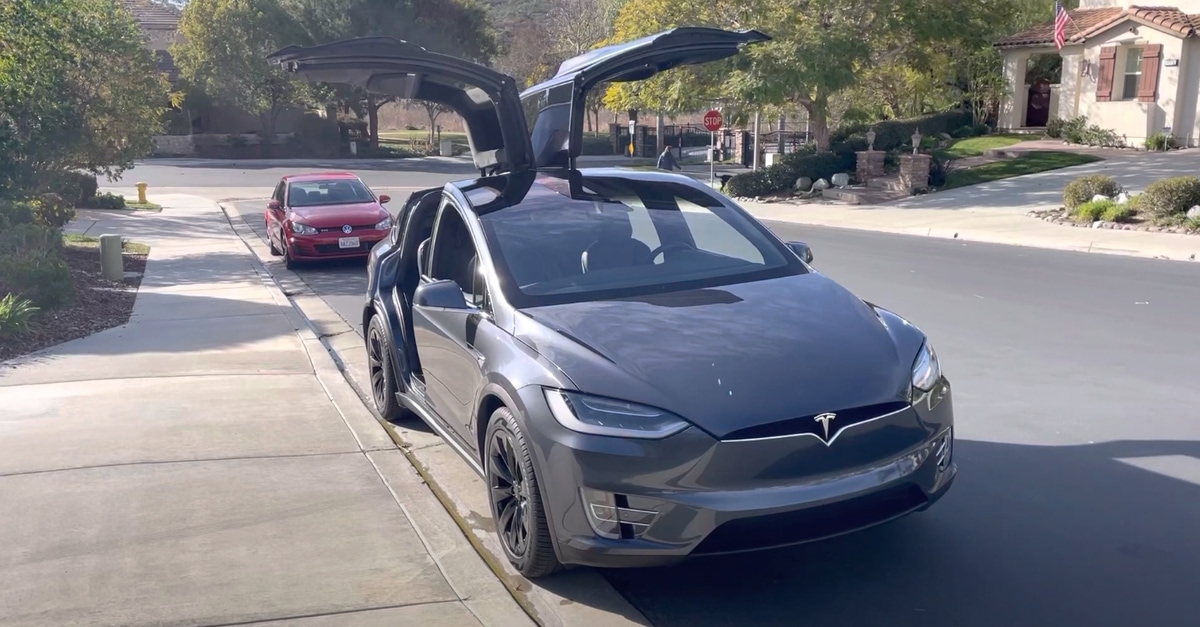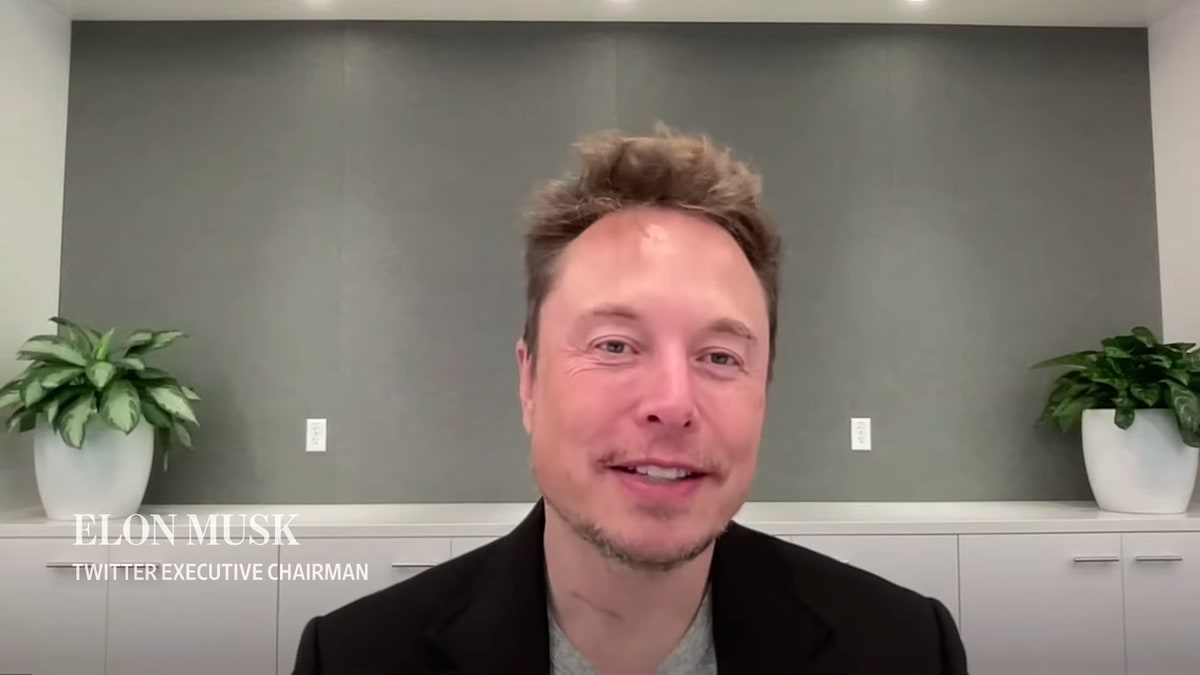By Kevin Armstrong

Despite a changing automotive landscape and a surge in electric vehicle options, Tesla's brand loyalty remains unrivaled, according to a recent report from banking and investing giant Citi. The resilience of Tesla's brand, even amidst concerns over macroeconomic conditions and increasing competition, demonstrates the appeal of the innovative automaker to its customers.
Tesla's Brand Loyalty Unfazed by Changing Market Dynamics
Citi's analysis indicates that Tesla's brand loyalty has remained stable and impressive despite potential headwinds. Brand loyalty, a key performance metric in the automotive industry, gauges a customer's likelihood of repurchasing a vehicle from the same brand. Here, Tesla's numbers truly shine: approximately 67% of Tesla owners return to purchase another vehicle, far surpassing the industry's average luxury brand loyalty rate of 46%.
Notably, this loyalty persists in spite of speculation that CEO Elon Musk's public persona and prolific Twitter use may impact customer sentiment. Contrarily, Citi's report suggests that Tesla's brand loyalty has trended upward in recent years, with the only notable dip in 2021 likely due to supply constraints rather than Musk's public image.
Tesla's Model 3 and Model Y Winning Over Mainstream Car Owners
One factor contributing to Tesla's impressive brand loyalty could be the value proposition offered by its Model 3 and Model Y. The Citi report notes these vehicles appear to be conquering market share from mainstream automakers rather than solely from the luxury sector. Notably, around a third of Model Y drivers previously drove vehicles from traditional manufacturers like Toyota or Honda.
Yet, Tesla's brand loyalty isn't immune to challenges. Citi's analysis highlighted that among all Tesla models, Model S demonstrated the lowest brand loyalty, perhaps a repercussion of the increased competition it faces from rivals like the Lucid Air, Mercedes EQS, and Porsche Taycan.
Tesla's Global Presence and Production Expansion
Despite these obstacles, Tesla's impressive market presence remains evident. As the world's most valuable automaker, with a market cap of approximately $580 billion, Tesla continues to expand its production capacity, aiming to produce over 1.8 million vehicles in 2023, predominantly at its Shanghai and Berlin Gigafactories. Additionally, Tesla's Giga Texas facility is anticipated to boost output in the next 18 months significantly, and the original Fremont plant is undergoing extensive reworking to match the production capabilities of its Gigafactory counterparts.
Tesla's challenge will be maintaining its high brand loyalty rate as more EV offerings flood the market. However, with new Model 3 and Model Y variants on the horizon and the highly anticipated Cybertruck set to disrupt the North American truck market, Tesla seems well-positioned to continue its dominance and customer loyalty.
While uncertainty surrounds the future of the EV market, one thing is clear: Tesla's ability to maintain high brand loyalty amidst changing conditions underscores the strength and appeal of its brand and its vehicles, reaffirming Tesla's place as a trailblazer in the automotive industry.
Ordering a New Tesla?
Consider using our referral code to help support our site and get credits toward Tesla Merch.
By Kevin Armstrong

In the electrifying realm of electric vehicles, Tesla's offerings continue to rev up more miles than any other brand. A study by iSeeCars, based on data from over 860,000 vehicles, reveals that all four Tesla models outpace the average electric car mileage of 9,059 miles a year. Topping the list is the Tesla Model X, defying the norm by clocking in an average of 10,378 miles annually.
Considering the broader automotive market, the average three-year-old gas-powered vehicle covers 12,758 miles per year — a figure EVs have yet to match. However, Tesla drivers consistently come closest, significantly increasing the EV average. Without Tesla's influence, the average EV mileage would drop to 6,719 miles per year.
The Least Driven EV: Porsche Taycan Trails Behind
Delving deeper into the data, the study found a noticeable discrepancy with Tesla's competitor, Porsche. The Porsche Taycan, a direct rival to the Tesla Model S, came in as the least-driven electric car, at just 4,846 miles per year, about half the distance driven by Model S owners. Model S came in second, Model 3 was third and Model Y fourth.
The study also explores the relationship between vehicle cost, use, and range. While electric cars generally cost 47% more than internal combustion cars, they are driven 29% less. This discrepancy can be attributed to several factors, such as EVs often being the second or third vehicle in a household or used less frequently for long trips. However, the pivotal factor appears to be battery range and the associated range anxiety.
Indeed, the iSeeCars study unveils a clear correlation: more range equals more use. Data shows that for every additional mile of range an EV offers, owners are willing to drive an additional 23 miles per year on average. This suggests that to match the average annual mileage of gas-powered vehicles, EVs need to add about 161 miles to their range.
Cost and Range: The Challenge for Wider EV Adoption
Achieving this increase in battery range at today's battery costs seems unfeasible. It would require an additional $60,000 on average, making the average EV price skyrocket to an unrealistic $105,147.
The study also reveals that range anxiety doesn't align with real-world use cases. According to the Department of Transportation National Household Travel Survey, almost all three-year-old EVs offer ample range for typical trips. The central issue seems to revolve around the time it takes to recharge an EV, which, in most instances, spans multiple hours.
“Range anxiety is less about being stranded in the middle of nowhere and more about the ‘refueling’ process for electric vehicles,” commented Karl Brauer, Executive Analyst at iSeeCars.
While Tesla's continuous strides in EV technology are closing the gap, overcoming range anxiety and matching the convenience of traditional gas-powered vehicles will be crucial for the broader adoption of EVs. With Tesla leading the charge, the day when EVs surpass gas-powered vehicles may not be too far off.
By Kevin Armstrong

In an illuminating hour-long interview on the Wall Street Journal CEO Council, Elon Musk provided a rare window into his thoughts on the intricate issue of succession. He framed the complexity of this challenge in a historical context, highlighting that it is an age-old problem that has troubled not just corporations but also nations, kings, prime ministers, and presidents throughout the annals of history.
Identifying Potential Successors
Musk disclosed that he has identified potential successors he believes could ably lead after his tenure. He has brought these individuals to the board's attention, providing them with his personal recommendations. However, he clearly stated that the ultimate decision rests in the hands of the board. Musk noted, "They may choose to go a different direction, but they are aware of who my recommendation is."
An intriguing point of discussion during the interview revolved around the stewardship of the companies Musk has built. He expressed a deep sense of responsibility, remarking, "The companies that I have created and are creating collectively possess immense capability, and so the stewardship of them is incredibly important." These comments underscored the vast influence these companies wield over society and civilization.
The Challenge of Stewardship and Control
Interestingly, Musk confessed his openness to external suggestions about control of the companies, a rarity for the famously confident CEO. He conceded, "The control question is a much tougher question, and something that I'm wrestling with, and I'm frankly open to ideas." This statement signified an unusual invitation for fresh insights into managing the future stewardship of his groundbreaking enterprises.
Furthermore, Musk delved into his aspirations for his companies, with a special focus on Tesla, to contribute positively to humanity. One idea he shared was establishing an educational institution wielding most of his voting rights. Yet, he stressed that automatic inheritance of control by his children was not on the cards, especially if they lacked interest or the ability to handle the companies effectively.
Tesla's Contributions to Sustainable Energy
Transitioning to the accomplishments of Tesla, Musk painted a vivid picture of the company's significant role in fast-tracking the advent of sustainable energy. He asserted, "The original goal of Tesla was to accelerate the advent of sustainable energy, which actually I think we've done that to a significant degree." In addition, he shared his gratification that other industry leaders have recognized Tesla's pioneering role in this revolution.
On the topic of Tesla's pursuit of self-driving technology, Musk exhibited optimism about achieving substantial progress within the year. He also predicted this technological milestone would usher in a substantial positive cash flow for the company.
Musk's wide-ranging discussion offered insightful reflections on the critical issue of succession planning and the enduring influence of Tesla. His open invitation for external ideas on company stewardship, coupled with his firm commitment to ensuring Tesla's mission continuity, underscore his acknowledgment of the gravity of his leadership role and his earnest dedication to securing his companies' long-lasting beneficial impact on humanity. This interview promises to ignite further dialogue about the future trajectory of Tesla and the broader implications of succession planning in innovative companies.
Elon Musk Interviewed on the WSJ
"loyalty" - Google News
May 26, 2023 at 02:48AM
https://news.google.com/rss/articles/CBMiZmh0dHBzOi8vd3d3Lm5vdGF0ZXNsYWFwcC5jb20vbmV3cy8xNDQwL2xveWFsdHktdW5yaXZhbGVkLXRlc2xhLXMtY3VzdG9tZXItcmV0ZW50aW9uLXRvcHMtYXV0by1pbmR1c3RyedIBAA?oc=5
Loyalty Unrivaled: Tesla's Customer Retention Tops Auto Industry - Not a Tesla App
"loyalty" - Google News
https://ift.tt/T7ypPYb
https://ift.tt/1InyqsO
Bagikan Berita Ini














0 Response to "Loyalty Unrivaled: Tesla's Customer Retention Tops Auto Industry - Not a Tesla App"
Post a Comment